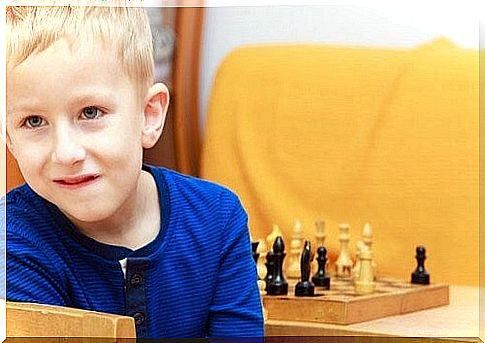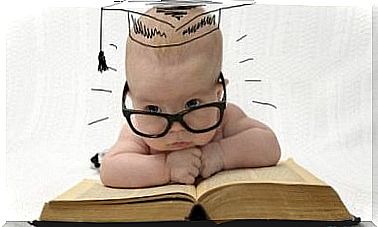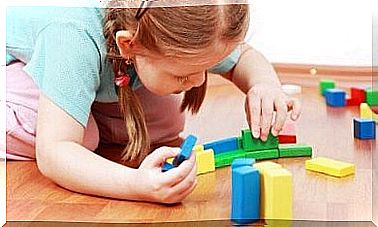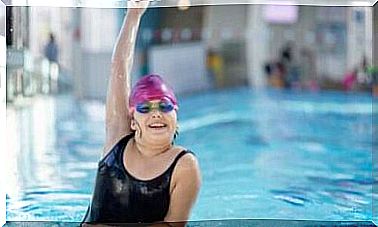Gifted Children: 4 Mistakes To Avoid

When you are the parent of a child with a high IQ, it is normal to be unsure of how to handle certain situations. In this article, we take a closer look at some of the most common mistakes that parents of gifted children usually make.
These mistakes usually occur because we do not know how to respond to our children’s excellent abilities and weaknesses.
Raising children can often be difficult, stressful, and a little intimidating, especially when it comes to children with higher intellectual abilities. Their demands are much more challenging.
There are not many tools available, desperation arises and this is where we start creating obstacles for our children. Of course, this is not intentional, and many times we are not even aware of it.
But the willingness and desire to help our children motivates us to look for the right tools and strategies to highlight the intelligence they possess. It is important to find the right parenting model to suit their needs.
The best thing to do is to examine the pros and cons of having gifted children. Thereby one can help them to reach their optimal development.
Mistakes to Avoid with Gifted Children
Avoid scolding them for their bad handwriting
When parents review their children’s school assignments, they usually notice a handwriting that is nothing to be proud of. We tend to highlight it to the child without understanding the reason for this bad handwriting. The reason behind this is an internal dyssynchrony between their intelligence and their motor skills.
This discrepancy alludes to problems with writing due to difficulties in coordinating hand movements. When we insist that our gifted children write neatly and properly, it can make them feel anxious and dissatisfied with themselves. This is a very common situation in homes with gifted children.
In these cases, we need to treat our children with lots of patience and love. It is good for them to feel recognized for their accomplishments. When we emphasize their weaknesses, it can contribute to low self-esteem.
If you notice that your child is having these difficulties, it is best to help him or her correct his or her handwriting with simple calligraphy. This is a challenge that is easy to overcome.

2. Avoid punishment for giving bad explanations
When we ask our children to read something, we assume that they will be able to give an extraordinary interpretation of what they have read because they are gifted. When they do not meet our expectations, we may in some cases be disappointed.
Thus, we do not understand the reason behind their failure, and this attitude does not help our children to improve at all.
One of the reasons behind this difficulty is that children with high intellect have more reasoning skills than language skills. They do not memorize what they read. For them, it is enough to understand the text.
Therefore, they may have a hard time when it is time for them to explain what they have read. This is another form of dyssynchrony, which here is between language and reasoning.
3. Do not force them to be part of a group they do not feel comfortable in
Gifted children often seek the company of adults, as their IQ and maturity are reminiscent of those of adults. They participate in adult conversations, they offer ideas, and in some cases, they can solve problems effortlessly.
Many parents have an inadequate perception of this attitude. They therefore force their gifted children to be with other children of their own age.
However, this can cause the gifted child to feel isolated, introverted, and inhibited in demonstrating his or her abilities. In some cases, it can even lead to rejection from their peers as well as bullying.
4. Avoid showing a lack of interest in helping gifted children
Gifted children tend to be very curious. They have a need to explore everything that catches their attention and they will constantly learn something new.
However, some parents do not have the time or inclination to help them. Therefore, they react negatively to the questions that the child asks.

This is a serious but common mistake. The intention of the parents should always be to help 100% so that their children can make improvements in all areas.
If children ask too many questions, it is because they have a need and a desire to learn. We need to respond in a friendly way so that our children can be nurtured with knowledge and feel the support of the whole family.
To avoid these mistakes that we often make with gifted children, it is important to accept them as they are. Avoid losing patience when they show curiosity and do not force them into things. Likewise, you should encourage them to take on new challenges without the fear of failing.
It is important to set aside time to help your children with their tasks. Gifted children also need recognition when they reach their goals.
If you take advantage of the good advice in this article, you will contribute to your children’s zest for life, and you will teach them how to demonstrate their abilities without fear.









